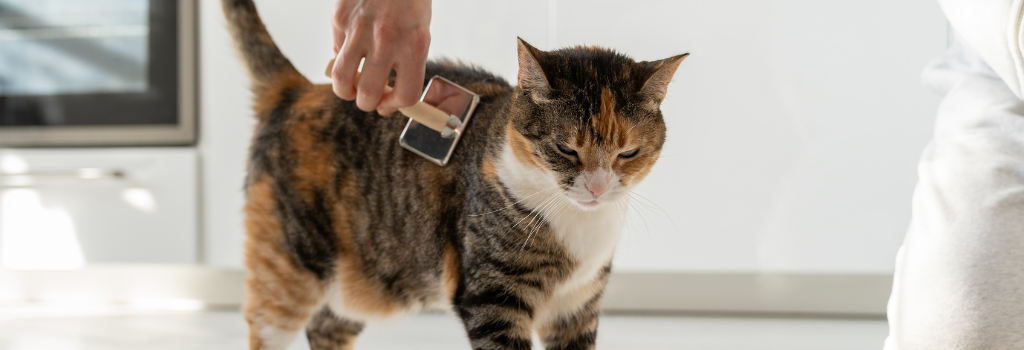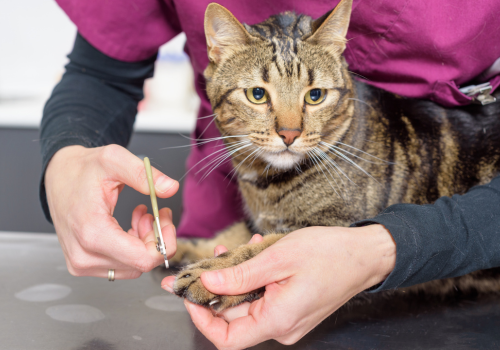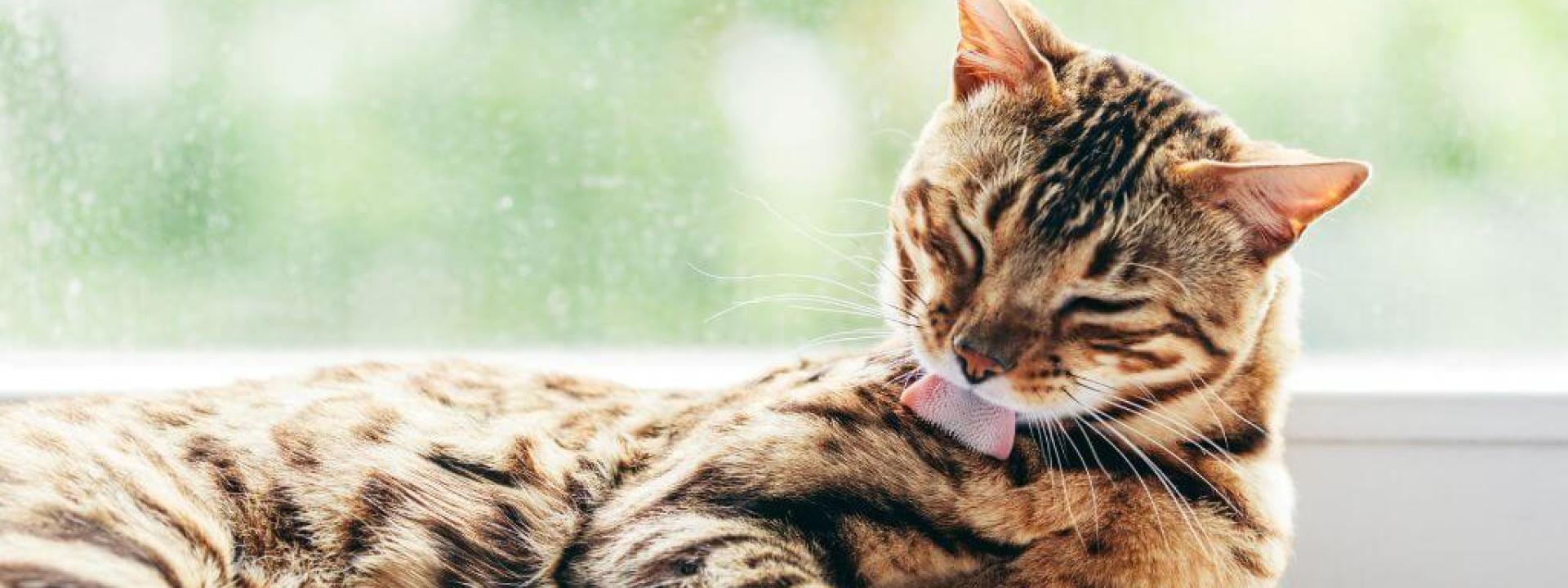Cat grooming and hygiene are integral to your cat's self-care process, preventing a matted coat and keeping them clean. A change in their grooming habits can often indicate a health condition, such as fleas or a skin infection. If you've recently noticed a difference in how your cat is grooming or changes in their once-healthy coat, you might have instinctively turned to the internet for insight. At Veterinary Medical Center, we work extremely hard to bring you the accurate information you need. We've answered the most frequently asked questions about cat grooming, bathing, and hygiene as thoroughly as possible to ensure you have the facts.
If you're looking for a highly trained veterinarian in Union City, CA, we'd love to see your cat to ensure they're grooming properly, so please call us at (510) 441-8500.
How do cats groom themselves?
Cats groom themselves using their mouth and tongue, which are their primary grooming tools. Their tongues are scratchy, like a tiny hairbrush that brushes through their coat. As National Geographic notes, "Cats love to groom themselves almost as much as they love to sleep, spending up to one-quarter of their waking hours cleaning their fur. The secret to their self-cleaning success? The spines on their tongues are curved and hollow-tipped…"
Sometimes they'll use their feet to assist them with places their mouth can't reach. As every cat owner knows, felines are incredibly flexible. They can reach just about anywhere on their body to groom.
How does proper grooming impact the health and wellbeing of your cat?
Cat grooming is a good indicator of the general health of your cat and how they're feeling overall. A well-adjusted, healthy cat will typically do an excellent job of taking care of themselves. So if you do see changes in how your cat is grooming, it can indicate something deeper going on, discomfort, or a systemic illness. The skin and the hair coat are also very protective surfaces against irritants and infectious organisms. So their ability to groom appropriately helps maintain the integrity of that protective layer and prevent future issues.
Sometimes when their hair coat is a little unkempt or starting to get matted or greasy, your veterinarian will begin to look at possible health issues affecting your cat's grooming process.

Proper cat grooming helps to:
- Reduce matting
- Keep your cat clean
- Maintain a healthy coat
- Release natural oils
What are some signs and symptoms that your cat is no longer grooming themselves properly?
There are several signs that your cat is no longer grooming themselves properly, which can ultimately lead to not getting clean enough or grooming to create bald spots.
Signs your cat is no longer grooming thoroughly enough include:
- Developing hair mats or clumps
- The hair coat begins to feel greasy or tacky
- Sores on your cat's skin
- Excessively grooming to the point of becoming bald
These signs require a veterinary visit to determine the underlying cause of the improper grooming and provide the appropriate care to correct the issue.
How soon should I bring my cat to see a veterinarian if they stop grooming?
Any time you have questions or concerns about your cat's behavior is an excellent time to bring your cat to the veterinarian. This is particularly true if there are signs of secondary issues resulting from the change in grooming, such as skin lesions, discomfort, or refractory itching. If you notice the hair is getting significantly scaly or greasy, it's matting, or if you see ectoparasites like fleas and ticks, call your veterinarian immediately.
Why is it important to consult a veterinarian if my cat has grooming problems?
It's essential to visit your veterinarian if you detect issues with grooming because several different ailments present themselves through your cat's hair coat. Sometimes, it's as simple as an older cat that has developed arthritis and is having trouble grooming. In other instances, they might have developed a condition that your veterinarian can see due to a poor hair coat — such as fleas or a skin infection.

What are the benefits of professional grooming?
Some groomers will groom cats, which can sometimes be necessary. Older cats that are arthritic and have a hard time grooming themselves need assistance. A groomer will most likely use a FURminator comb, which helps pull out the undercoat and has a release that pushes the hair out once it gets caught in the tines. A slicker brush is also helpful, which is brushed down your cat's back to catch a lot of hair. Long-haired cats have their own grooming issues, such as constant hairballs, and often do better when they're shaved down professionally by a groomer.
How can I ensure that my cat is staying clean?
Cats are generally going to do a thorough job of keeping themselves clean if they're otherwise happy and healthy. Some things you can do to help them with that is to help them maintain an ideal body weight so that they can physically reach all the areas of their body that they need to keep clean. Inspect their hair coat, and skin when you're petting them.
If there are any concerns, contact your veterinarian, who may recommend supplements like fish oil or fatty acids to help keep the skin and hair coat nice and healthy. Maintaining an ideal and clean litter box will also help keep your cat clean and ensure you stay up to date on your preventatives to keep fleas and ticks from becoming an issue for your cat.
Hill's Pet Nutrition is another excellent resource on cat grooming, including the dangers of "under grooming." If you have further questions about cat grooming and hygiene, reach out to your veterinarian. If you live in or near Union City, CA, we'd love to see your cat if they seem to be having problems in this area, so please don't hesitate to call us at (510) 441-8500 or email us at [email protected].

